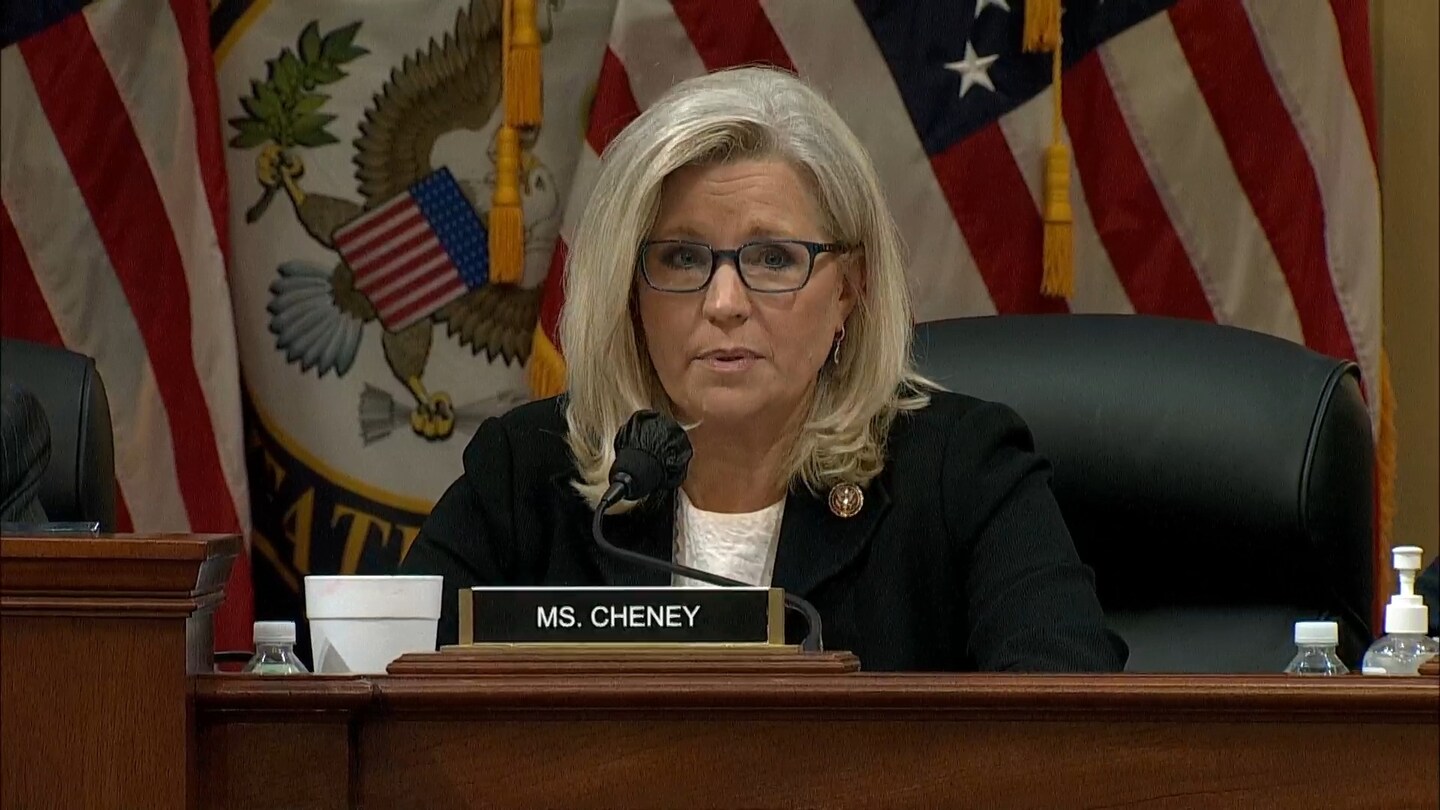Cheney has now made another statement on this front, continuing to try to point the Justice Department in a specific direction.
At the start of Tuesday’s hearing, Cheney roundly and somewhat preemptively dismissed the idea that Trump was merely being guided in his actions by those around them.
“Now, the argument seems to be that President Trump was manipulated by others outside the administration, that he was persuaded to ignore his closest advisers and that he was incapable of telling right from wrong,” Cheney said.
She added: “The strategy is to blame people his advisers called, quote, ‘the crazies’ for what Donald Trump did. This, of course, is nonsense. President Trump is a 76-year-old man. He is not an impressionable child.”
She said the record, in fact, showed quite the opposite — that he was told over and over again that he had in fact lost his reelection. The committee has shared lots of evidence that he had been told this, and it would play new evidence to that effect Tuesday.
Then came the key line from Cheney: “No rational or sane man in his position could disregard that information and reach the opposite conclusion. And Donald Trump cannot escape responsibility by being willfully blind.”
Cheney’s choice of words is important. In sum, Cheney dismissed the idea floated by some legal experts that perhaps Trump could be guilty by virtue of his “willful blindness” to the fact that he had lost. Courts including the Supreme Court have established that when it comes to crimes like the one the Jan. 6 committee is focused on — obstruction of an official proceeding — proving that someone chose to remain “willfully blind” to the facts can be used to prove culpability.
Some witnesses, such as former attorney general William P. Barr and former deputy attorney general Richard Donoghue, have gestured in that direction, noting that when they debunked Trump’s voter fraud claims in front of him, he merely moved on to the next claim without demonstrating much in the way of engagement with the facts or curiosity about them.
That said, while “willful blindness” would seem a lower standard to prove, it’s not without its pitfalls. For instance, going with that standard would mean Trump’s defense team could fight back by arguing that he actually believed the bogus voter fraud theories he espoused. (“Delusional pigheadedness is indeed a defense,” Columbia University law professor Daniel Richman has summarized.) And surmising what Trump actually believes is a minefield that plenty have stumbled through over the past seven years, with Trump often deliberately providing contradictory indications of where his mind’s at.
After Cheney’s comment, the committee presented significant new evidence that those around Trump knew he had lost and that Trump would have been aware of this, as well. To wit:
- In new testimony taped last week, former Trump White House counsel Pat Cipollone said that he agreed with Barr’s Dec. 1 statement that the evidence of fraud was not sufficient to call the results of the election into question.
- Cipollone also confirmed that chief of staff Mark Meadows was telling people that Trump would eventually agree to a graceful exit.
- Barr testified that Meadows told him “I think that [Trump is] becoming more realistic and knows that there’s a limit to how far he can take this. And then Jared [Kushner] said, you know, ‘Yeah, we’re working on this.’ ”
- Trump deputy White House press secretary Judd Deere said that after the electoral college validated Biden’s win Dec. 14: “I told him that my personal viewpoint was that the electoral college had met, which is the system that our country is set under to elect a president and vice president. And I believed at that point that the means for him to pursue litigation was probably closed.”
The thrust of all of it is clear: Lots of people knew how ridiculous all of this was. And rather than focusing on pursuing Trump’s claims, they just wanted to know when it was all going to be over. These aren’t the conversations you have when you’re taking what Trump is doing seriously. Crucially, it also suggests that Meadows, who very much assisted in Trump’s crusade, knew better and was telling people (based on what, it’s unclear) that reason would ultimately prevail.
This isn’t the first time the committee has asserted that its goal is to prove Trump knew — and nothing less. Rep. Jamie B. Raskin (D-Md.) has said, “I think we can prove to any reasonable, open-minded person that Donald Trump absolutely knew.”
But some close to the situation continue to push the idea that ne’er-do-wells were whispering in Trump’s ear and manipulating him — a view that’s consistent with how aides have long talked anonymously about how Trump’s worst impulses came to be. Cheney laid down a marker, asserting that the committee won’t settle for that, even if it could conceivably be used to prove Trump broke the law.
